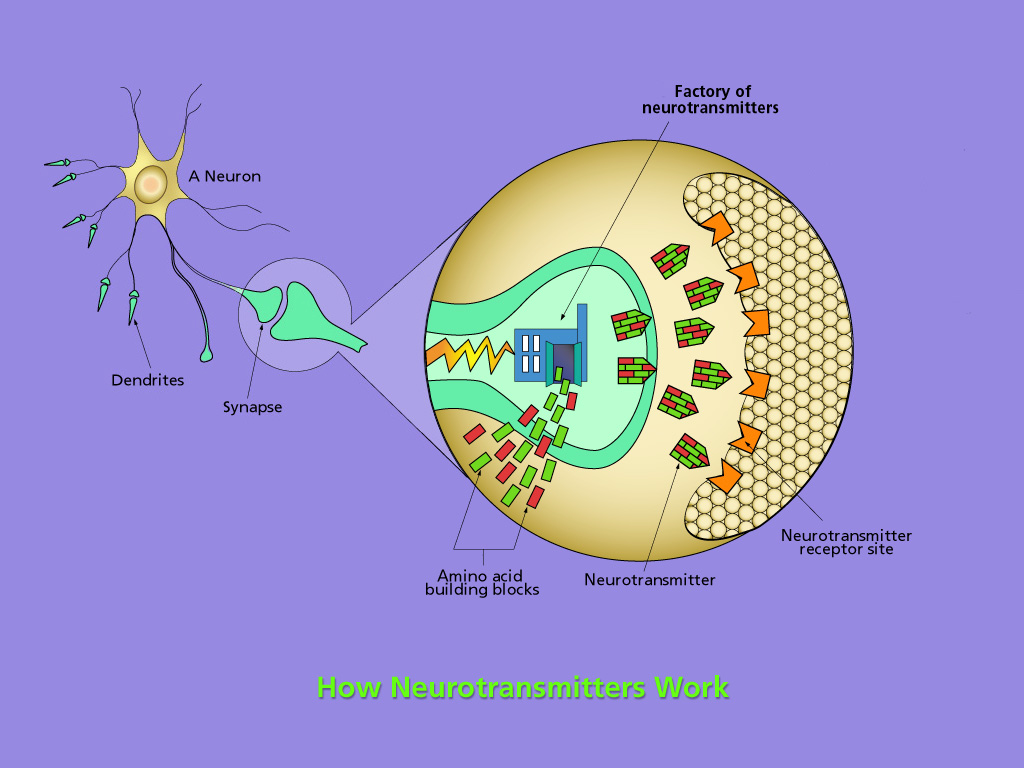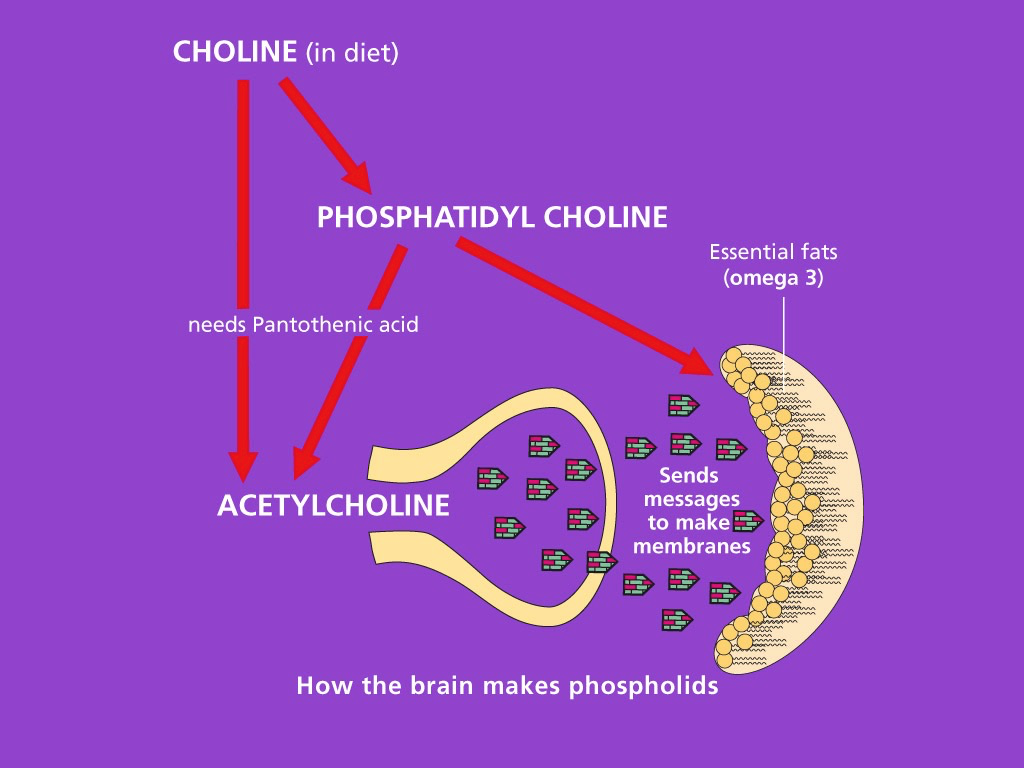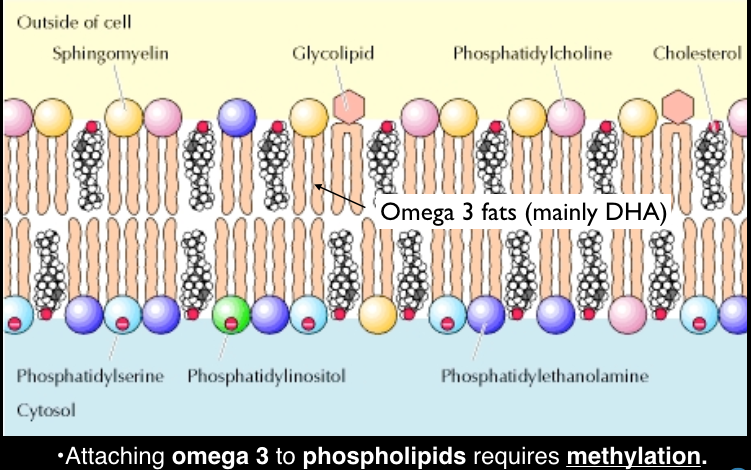
Babies are born with about 100 billion neurons that connect to each other, help in place, and insulated by roughly the same number of glial cells which also nourish and protect the neurons, feeding them with fuel and nutrients.1 Glial cells get damaged by ordinary mobile phone signals, with ten years mobile phone use more than doubling risk of brain cancer (glioma). Gliomas are very much on the increase, and very hard to treat, accounting for over 2,000 deaths a year – more than the number killed in road traffic accidents.
Contrary to popular view you don’t necessarily lose neurons as you age, but you can for reasons I’ll explain and that’s why some people’s memory declines. I’m going to tell you about my six favourite brain friendly nutrients and fuels that will keep your brain sharp at any age and help accelerate children’s learning ability.
IT’S ALL ABOUT CONNECTIONS
Even more important than the number is the connections between neurons called dendrites. Babies make 1 million new brain connections a second! These connect to others across a gap, called a synapse. At birth there are about 2,500 synapses per neuron. By age three there’s 15,000 per neuron. A newborn baby’s brain uses 75 per cent of all energy they get from breast milk – and can only do this by burning ketones as brain fuel, derived from fatThere are many different types of fats; polyunsaturated, monounsaturated, hydrogenated, saturated and trans fat. The body requires good fats (polyunsaturated and monounsaturated) in order to… (more on this in a minute). That is why they are born with a layer of cuddly blubber, their reserve of essential brain fuel. The synapses communicate by sending messages, neurotransmitters, made from amino acidsAmino acids are commonly known as the building blocks of protein. There are 20 standard amino acids from which almost all proteins are made. Nine…, except for one called acetylcholine, which is critical for memory, made from a special kind of fat. I’m going to tell you about my six favourite brain friendly nutrients and fuels that allow you to build a better brain.

Use it or lose it. The brain eliminates connections that are seldom or never used, which is why continuing to learn keeps your brain healthier and memory intact.
ACETYLCHOLINE BOOSTERS
Key to memory is the neurotransmitterA neurotransmitter is a chemical messenger that carries signals between body cells. They are various types of neurotransmitters which play a major role in everyday… acetylcholine. It’s made from a kind of fat called a phospholipid. All phospholipids start with ‘phosphatidyl’ and phosphatidylcholine (PC), makes acetylcholine. This is found concentrated in eggs and fish. For vegans lecithin granules or capsules are the best source. There’s another key phospholipid called phosphatidyl serine (PS). Sixteen clinical trials indicate that PS benefits measurable cognitive functions which tend to decline with age; these include memory, learning, vocabulary skills and concentration, as well as mood, alertness and sociability2. I supplement both PC and PS every day.

PYROGLUTAMATE, GLUTAMINE AND GABA
Glutamine is a very important amino acid known to enhance brain function. It also helps regenerate cells and is a precursor for GABA, a critical relaxing neurotransmitter which switches off adrenalin. We all know and like GABA because both alcohol and marijuana promote it – temporarily – which is why these substances help you chill out. One of the most interesting natural forms of glutamine is pyroglutamate. It does three things I really like:
• It increases acetylcholine production and reception
• It improves blood brain flow and communication between the left and right hemispheres of the brain.
• It protects memory in those with memory problems
Scientists at the department of Neurological Pathology at the University of Catania, in Italy, compared pyroglutamic acid against a placebo in 40 patients aged 65 and above, who were all suffering from memory problems. Half received pyroglutamic acid, half placebo for two months. Those taking pyroglutamic acid demonstrated significant improvements in memory function, compared to the control group.3 A review of other studies using pyroglutamate shows similar findings.4 The Italian researchers had previously reported that pyroglutamic acid encouraged the release of the memory chemical acetylcholine in the brain5
and preserve acetylcholine levels in the brain6. In an animal study back in the 80’s a derivate of pyroglutamate, given to older mice, produced over 30% higher number of receptors, suggesting a regenerative effect.7 It was also shown to enhance communication between the right (logical) and left (analogical or relational) hemispheres of the brain. Women, by the way, have the two halves of their brain better connected which is why they tend to have enhances relational skills. Meanwhile a study in Moscow at the Russian Academy of Medical Sciences, found that pyroglutamate improves blood circulation in the small arteries of the brain without any side effects8.
I like things that increase blood brain flow because they seem to enhance connection and creativity– the ability to connect the dots in novel ways. This may be one of the reasons LSD and psilocybin are proving so interesting in relation to unravelling underlying causes of depression and anxiety. There are almost 200 studies underway worldwide. Another great blood brain flow booster is arginine. It boosts nitric oxide, which improves overall circulation. This is how Viagra works. That’s why I include arginine pyroglutamate in my daily brain food cocktail.
THE THREE BRAIN MAKERS – OMEGA-3, PHOSPHOLIPIDS AND B VITAMINS
If you’ve read my report last year on ‘How to Boost Your Intelligence’ you’ll know that neurons are actually made out of a membrane of omega-3 (DHADHA is short for Docosahexaenoic Acid. It is an essential omega-3 fatty acid found in fish such as salmon, mackerel and herring, and is often…) stuck to phospholipids, and the binding of the two depends on a processes called methylationMethylation is what occurs when the body takes one substance and turns it into another, so that it can be detoxified and excreted from the…, itself dependent on B vitamins (see diagram below). You’ll also notice that cholesterol is critical which is why statins, drugs that knock out cholesterol production, are so strongly linked with rapid onset of memory decline9.

You’ll read that vitamins B3, pantothenic acid (B5), B6, folate and B12 all have critical roles in memory and brain function. If your blood homocysteineHomocysteine is an amino acid found in the blood. Elevated levels of homocysteine have been associated with narrowing and hardening of the arteries, an increased… level is high you’re not good at methylation, and likely to have declining memory. A study by researchers at Sweden’s Orebro University Hospital, involving almost 700 schoolchildren, compared the school grades, and sum of school grades, in 10 core subjects, with homocysteine levels. The higher their homocysteine levels, and the lower their B vitamin status, the lower were their school grades.10 How powerful is that for showing the direct link between nutrition and intelligence? I’m of the opinion that the 7% increase in IQ scores we found in the Lancet study back in 1987 when we gave schoolchildren a multivitamin and mineral based on optimal levels, much higher than RDA, was probably largely to do with improving methylation. I do not understand why parents supplement their children with omega-3 but not with an optimum nutrition multivitamin when there is consistent evidence of higher IQ in children who take these daily.
But, however good your are at methylation you have to have the phospholipids and omega-3s to start with. Oily fish contain roughly equal amounts of EPAEPA is short for Eicosapentaenoic Acid. It is an essential omega-3 fatty acid found in fish such as salmon, mackerel and herring, and is often… and DHA. However, according to a meta-analysis published last year in the Public Library of Services journal ‘DHA, alone or combined with EPA, contributes to improved memory function in older adults (45+) with mild memory complaints’, concludes a [4]. The benefit, they say, is apparently driven by DHA, at a daily level between 500 and 1,000mg. There is also evidence of benefit for schoolchildren.<sup>11</sup>
These omegas have more of an effect on EQ (emotional intelligence) than IQ. That’s why studies show children become less aggressive and reactive and calm down. I’m sure that’s what helps them concentrate better. The same is true for all of us. We become dumber when emotions are running high.
To achieve at least 500mg of both EPA and DHA does mean supplementing them, as well as eating fish. I take a twice daily capsule giving me 250mg of each, and eat oily fish three times a week, plus a tub of taramasalata – fish roe is a great source. I also eat chia seeds, the highest vegetarian source of omega-3, however I don’t know of any studies that show any significant increase in DHA levels from eating flax or chia seeds or their oils. Children of vegans and those who avoid seafood or have low omega-3 intake have worse cognition and social development . I am not against veganism although being a fishitarian is probably healthier, but it is absolutely essential that young children have a direct supply of DHA and phospholipids, which means supplementation. That is why I recommend vegans, and especially vegan children, to at least supplement DHA. This can now be derived from DHA for strict vegans. (see vegan omega 3). Personally, I supplement fish oil derived omega-3 because I want both brain building DHA and also mood boosting and anti-inflammatory EPA.
KETONES – THE ALTERNATIVE BRAIN FUEL
Most cells in the body can run on fat or glucose for energy. Fat, called a triglycerideTriglycerides are a type of fat found in the blood – the body uses them for energy. However, high levels of triglycerides can raise the…, is shaped like an E – the vertical backbone is ‘glycerol’ which tastes sweet and can be processed into glucose and used for energy. The three prongs are fatty acids (for example omega-3 or 6). Muscle cells, for example, can use fatty acids for fuel. But brain cells cannot. They have to run on either glucose or ketones. Ketones are only made in the liver from medium-chain-triglycerides (MCTs). Coconut, palm and olive oil are sources of MCTs. The only way a baby’s brain can get all the energy it needs for rapid building is from ketones. There’s just a limit to how much glucose the brain can use.
That is why, tragically, several vegan babies have died when they have either not been breast-fed or weaned onto a fat-free diet, or when the mother’s diet is deficient in essential fats by avoiding all eggs and fish. It is also why the brain size of fat-deficient mothers actually shrinks in pregnancy as the foetus will rob the mother’s brain of fats to build its own. It’s a case of ‘Mummy I shrank your brain’. An example of this is a recent study that finds that vegan women, when pregnant, suffer more from anxiety than non-vegan mothers.13
You don’t have to generate ketones for the brain to work optimally. Normally, the brain is using about 22% of the total energy we take in. You can get all that from glucose. However, if there are ketones in your system the brain will selectively use this suggesting that neurons like running on ketones.
However, people with messed up neurons, in neurodegenerative diseases such as brain cancer, Alzheimer’s, Parkinson’s and perhaps epilepsy, may have messed up glucose metabolismMetabolism is a term that is used to describe the chemical reactions that take place within the body’s cells. The body gets the energy it… such that giving neurons a break from burning glucose, and switching to ketones, may help. It also helps if you’ve run out of calories or carbs and is what the body does when you fast, feeding ketones generated from body fat into the brain.
A good example is the work of Kieran Clarke, Professor of Physiological Biochemistry at Oxford University. Having been approached by the American Defense Advanced Research Projects Agency (DARPA) she had the opportunity to test ketones as an energy source in combat situations. “They were looking for an energy source that would improve soldiers’ mental and physical performance under battlefield conditions,” she says. “Troops weren’t taking enough rations into action because they filled their rucksacks with extra ammunition instead. As their blood glucose dropped, they become confused, sometimes ended up shooting their own side.”
She had synthesised ketones, and tried them out on the soldiers. “We called it DeltaG which is the biochemical name for energy but also has a military ring to it – Delta Force and all.” She tried the new compound on rats a few years later and found it boosted their physical and mental performance. Those who got 30 per cent of their diet in the form of ketones ran 30 per cent further on a treadmill and were smarter at finding their way out of a maze.
Pure synthetic ketones, a new nutrient, are not yet available in the EU, temporarily blocked by Novel Foods regulations, but are available in the US. However, by eating a very low carb diet you can make your own. I’ll be explaining how to do this healthily in my next newsletter.
IN SUMMARY, BRAIN FRIENDLY NUTRIENTS INCLUDE:
Slow low-GL carbs or ketones for fuel
Phospholipids (PC and PS) from fish, eggs and supplements
Omega-3, especially DHA, from oily fish, fish oils and algal vegan DHA supplements
Pyroglutamate
B vitamins – B3, pantothenic acid (B5), B6, folate, B12
Ensuring your optimise your intake every day from diet and supplements; keeping your blood sugar level even; and your homocysteine level low is your best opportunity for making and keeping your brain sharp.
References
1. Christopher S von Bartheild et al., The Search for True Numbers of Neurons and Glial Cells in the Human Brain: A Review of 10 Years of Cell Counting, J Comp Neurol, 2016
2. Kidd P, ‘Phosphatidylserine; Membrane Nutrient for Memory. A Clinical and Mechanistic Assessment’, Alt Medicine Review,1996, 1(2). 70
3. Grioli S et al. Pyroglutamic acid improves the age associated memory impairment, Fundam Clin Pharmacol 1990;4(2):169-173
4. O Blin et al, ‘Effects of dimethylaminoethanol pyroglutamate (DMAE p-Glu) against memory deficits induced by scopolamine: evidence from preclinical and clinical studies.’ Psychopharmacology (Berl). 2009 ;207(2):201-12.
5 T Antonelli et al. ‘Pyroglutamic acid administration modifies the electrocorticogram and increases the release of acetylcholine and GABA from the guinea-pig cerebral cortex.’ Pharmacol Res Commun 1984;16(2):189-197; see also G Spignioli et al,. Pharmacol Res Commun 1987;19(12):910-912 and G.Pepeu, G.Spignoli Prog Neuropsychopharmacol Bio Psychiatry 1989;13:S77-S88
6 H. Pilch et al., ‘Piracetam elevates muscarinic cholinergic receptor density in the frontal cortex of aged but not of young mice’, Psychopharmacology, Vol 94(1), 1988, pp. 74–8
7. Lunshina EV et al, ‘Effect of a drug composition containing pyroglutamic acid and pyrrolidone on the cerebral circulation’,. Eksp Klin Farmakol 2002;65(3):3-5
8. Strom BL et al., Statin Therapy and Risk of Acute Memory Impairment, JAMA Intern Med. (2015)
9. A. K. Borjel et al., ‘Plasma homocysteine levels, MTHFR polymorphisms and school achievement in a population sample of Swedish children’, Homocysteine Metab, Vol 1, 2005, p. 4
10. K Yurko-Mauro et al, ‘Docosahexaenoic acid and adult memory: a systematic review and meta-analysis.’ PLoS One. 2015; 10(3)
11. Hibbeln JR, Davis JM, Steer C, Emmett P, Rogers I, Williams C, Golding J., Maternal seafood consumption in pregnancy and neurodevelopmental outcomes in childhood (ALSPAC study): an observational cohort study., Lancet. 2007 Feb 17;369(9561):578-85.
12. Vaz Jdos S, Kac G, Emmett P, Davis JM, Golding J, Hibbeln JR., Dietary patterns, n-3 fatty acids intake from seafood and high levels of anxiety symptoms during pregnancy: findings from the Avon Longitudinal Study of Parents and Children, PLoS One. 2013 Jul 12;8(7):e67671

Comments
Join the Conversation on our Facebook Page